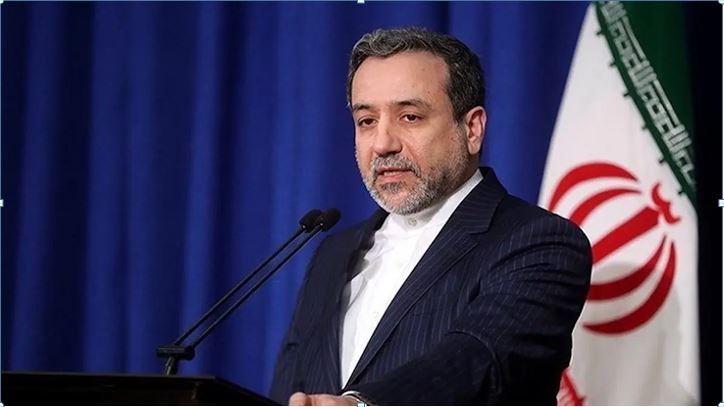
By Seyed Abbas Araghchi
Seyed Abbas Araghchi is the minister of foreign affairs of the Islamic Republic of Iran.
In recent weeks, messages and letters have been exchanged between Iran and the United States. Contrary to some interpretations, these communications — at least from our side — have been neither symbolic nor ceremonial.We view them as representing a genuine attempt to clarify positions and open a window toward diplomacy.
Regarding Monday’s comments by President Donald Trump, Iran is ready to engage in earnest and with a view to seal a deal. We will meet in Oman on Saturday for indirect negotiations. It is as much an opportunity as it is a test. The model of engagement we propose is not novel. The United States itself is intermediating indirect talks between Russia and Ukraine — a much more intense and complex conflict entailing strategic, territorial, military, security and economic aspects.
I also have the experience of leading indirect talks with the United States. Mediated by the European Union back in 2021, that process — though more convoluted and demanding than direct engagement — proved both possible and productive. Though we did not cross the finish line then, it was mainly because of a lack of real determination by the Biden administration.
Pursuing indirect negotiations is not a tactic or reflection of ideology but a strategic choice rooted in experience. We face a significant wall of mistrust and harbor serious doubts about the sincerity of intentions, made worse by U.S. insistence on resuming the “maximum pressure” policy prior to any diplomatic interaction.
To move forward today, we first need to agree that there can be no “military option,” let alone a “military solution.” President Trump clearly recognizes this reality in urging a ceasefire as the first course of action to end the Ukraine conflict.
Spending taxpayer dollars on escalating the U.S. military presence in our region, potentially endangering American soldiers far from home, is not conducive to a diplomatic outcome. The proud Iranian nation, whose strength my government relies on for real deterrence, will never accept coercion or imposition.
We cannot imagine President Trump wanting to become another U.S. president mired in a catastrophic war in the Middle East — a conflict that would quickly extend across the region and cost exponentially more than the trillions of taxpayer dollars that his predecessors burned in Afghanistan and Iraq.
Looking ahead, two additional facts deserve emphasis.
First, President Trump might not like the Joint Comprehensive Plan of Action (the nuclear deal signed in 2015), but it contains one vital commitment: that “Iran reaffirms that under no circumstances will Iran ever seek, develop or acquire any nuclear weapons.”
Ten years after the JCPOA was concluded — and nearly seven years after the United States unilaterally walked away from it — there is no evidence that Iran has violated this commitment. This has been reaffirmed by U.S. intelligence assessments time and again. Tulsi Gabbard, the director of national intelligence, recently acknowledged that “Iran is not building a nuclear weapon and Supreme Leader [Ayatollah Ali] Khamenei has not authorized the nuclear weapons program he suspended in 2003.”
We have objections to many aspects of U.S. global policy, and particularly to the West’s policies in our region, including its double standards on proliferation. By the same token, there may exist possible concerns about our nuclear program. We proved our readiness to address those concerns when we agreed to the 2015 deal — enabled by mutual respect and equal footing. But even as we remain committed to the JCPOA, our experience of the unwillingness or inability of the United States and the E.U. to fulfill their commitments under the nuclear deal has persuaded many in Iran to insist on guarantees for mutual fulfillment of commitments.
Second, there is a serious misconception that needs to be cleared up. Many in Washington portray Iran as a closed country from an economic point of view. The truth is that we are open to welcoming businesses from around the world. It is the U.S. administrations and congressional impediments, not Iran, that have kept American enterprises away from the trillion-dollar opportunity that access to our economy represents.
Indeed, when the United States agreed to license the sale of passenger aircraft as a part of the JCPOA, Iran immediately negotiated a contract with Boeing to buy 80 planes. To say that the scope for trade and investment in Iran is unparalleled is an understatement.
Our proposal for indirect negotiations remains on the table. We believe that if there is true will, there is always a way forward. As recent history has shown, diplomatic engagement worked in the past and can still work. We are willing to clarify our peaceful intent and take the necessary measures to allay any possible concern. For its part, the United States can show that it is serious about diplomacy by showing that it will stick to any deal it makes. If we are shown respect, we will reciprocate it.
Military buildups send the exact opposite signal. Mark my words: Iran prefers diplomacy, but it knows how to defend itself.We have not yielded to threats in the past, and we will not do so now or in the future. We seek peace, but will never accept submission.
The ball is now in America’s court. If it seeks a genuine diplomatic resolution, we have already shown the way. If, instead, it seeks to impose its will through pressure, it must know this: The Iranian people respond decisively to the language of force and threat in a unified way. There is a chance for the United States to finally have a president of peace. Whether to seize that opportunity is a choice.
Published by Washington Post 8 April












 Posted in
Posted in 











